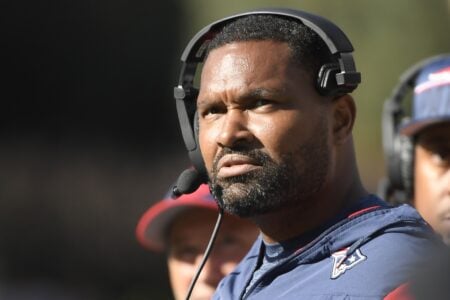Gotcha, thanks. There's really two parts to this response.
I would agree the Colts declined. If the 2009 Colts played the 2010 Colts, the 2009 Colts would generally win. However, in the context of this discussion about what happened in 2011, I don't believe the decline of the 2010 would have continued in 2011 if Manning were healthy. This wouldn't have become a pattern where they drop down again to a .500 team. They'd still have won 10-13 games and made the play-offs as usual. They had a significant drop-off at QB, and when they corrected that, they won double-digit games and made the play-offs with arguably an even worse roster than 2010.
As for the second part regarding more close games and losing more of them, well yes, and no. There is absolutely an element of luck because we are talking about small sample sizes when it comes to win/loss. The NBA plays 5 times as many games, MLB plays 10 times more, and generally things even out over the long haul. But in short bursts over individual season, yes, it can be misleading.
Barnwell wrote a good synopsis of it here:
http://grantland.com/features/nfl-stats-predicting-success/
Look at the section on Record in One-Touchdown Games.
It’s almost impossible to win a large percentage of close games in the NFL. Even if there was something unique about your team that gave it a late competitive edge, the attrition rate in football is so high as to render many of those advantages moot over a time frame of any significance. Great teams stay great by avoiding close games altogether — they just blow out the competition. Teams with a gap between their point differential and their win-loss record often have that gap come down to their performance in close games, so you’ll see some familiar faces from the last list here.
How did it project 2013? How does “great … except for the Colts” sound again? This stat successfully predicted that the records of teams like Atlanta (7-2 in one-touchdown games in 2012, 3-7 in 2013), Houston (5-0 in 2012, 2-9 in 2013), and Minnesota (5-1 in 2012, 4-4-1 in 2013) were unsustainable, but the 9-1 Colts went 5-1 in one-score games in 2013. Including the playoffs, Andrew Luck is now 15-2 in games decided by seven points or fewer during his pro career.2
For the record, Andrew Luck is 2-2 in close games so far in 2014.
Barnwell does point out in another article there are two QBs who have been able to consistently do well in this metric. You won't be surprised to find out both are first-ballot HOFers playing against each other today.
http://grantland.com/features/breaking-best-nfl-stats/
Let’s start with a group of teams that were dominant in close games during given NFL seasons. Our arbitrary group of teams played six or more games that were decided by a touchdown or less in those seasons and each of them won 75 percent or more of those games. In all, those teams went a combined 449-102 (81.5 percent) in close contests. If there were really something consistent about how a team performs in the tight ones, these teams would at least emulate their record during the following season. Instead, they went a combined 256-249 (50.7 percent) in those same close games the following year.
On the other side of the tracks are the teams that couldn’t pull out those close games, the ones that didn’t know how to win or finish or whatever. They were the ones that played six or more games and won only 25 percent or less of them. In their downtrodden year, they went a combined 103-479 (17.7 percent). The following year? 241-284 (45.9 percent). Winning the close ones just isn’t a sustainable way to make the playoffs year in and year out.
If there’s an exception to the rule, as with the Pythagorean expectation, it’s having a great quarterback. Peyton Manning was 64-33 in those games with the Colts, and it’s not surprising when you consider how well he managed endgame scenarios. Tom Brady is 43-15 in those same games. On the other hand, Aaron Rodgers is 13-17 in one-touchdown games, and Drew Brees is 22-16 during his time in New Orleans (after going 14-14 as the Chargers starter). So some great quarterbacks seem to drastically outperform the expected regressions, but others don’t.
How did this all work out? Well it's too early to say for 2014 although he looks pretty on-the-mark already on a lot of his predictions. We can look at the 2012 numbers though:
Now there are obviously other factors involved such as the draft, roster churn, coaching changes, et cetera. But generally speaking, it is tough to consistently win close games consistently. As Barnwell pointed out, Brady is one of the two elite QBs who have done it well, which is perhaps why most Patriots fans don't understand that teams lose lots of close games.
So in short, yes, there is a lot of luck involved in close games. It could be a fumble bouncing one way vs. another, or a ball batted in the air that is a 50/50 ball between an OL and a LB, or a controversial call (or non-call like the Panthers game). But there is also some skill that can help some teams do better than others consistently. It's like blackjack; nobody wins every hand, but a skilled card-counter can win more than others. Fortunately for us, we've got one of them.


















